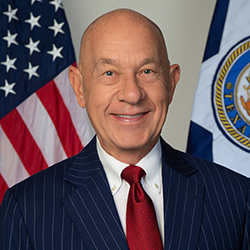In another step toward settling its years-long conflict with the city, the firefighters union met with Mayor John Whitmire’s administration [last] Friday morning to discuss the city’s first proposal for raises and back pay, with both sides expressing optimism about the potential for a resolution in the coming weeks.
The city and its firefighters have been embroiled in a bitter pay dispute since 2017. Whitmire, who has kept close ties to the firefighters during his lengthy political career, has long promised to put an end to their prolonged legal battle if elected mayor. He dropped an appeal in the lawsuit immediately after taking office, and attorneys for the two sides have met regularly since then.
While prior talks were mainly about the broader framework, Friday’s meeting saw the two parties delve into potential pay figures for the first time, according to City Attorney Arturo Michel. Both Michel and union president Marty Lancton told the Chronicle they feel encouraged by the progress so far.
The city is aiming to resolve all aspects of the dispute by the end of February, according to Michel. This involves agreeing on the amount of back pay owed to the firefighters since contract negotiations broke down, as well as establishing a new contract that outlines their compensation for the next three years. It also includes, Michel said, creating a plan for the city to finance these substantial payments.
“We’re committed to doing everything we can to reach that goal,” Michel said. He added that the city and the firefighters hope to reconvene next week to further solidify the pay figures.
[…]
The Greater Houston Partnership recently reported that the back pay owed to firefighters could cost the city between $500 and $600 million, adding strain to an already tight budget. And, as federal COVID-19 relief funds run out, city officials have projected budget shortfalls ranging from $114 million to $264 million during Whitmire’s first term.
Michel said that the city cannot disclose the specific numbers being discussed, but he noted that covering the costs will likely require using a combination of general fund dollars and debt issuance. He added that, depending on the bond type chosen, voter approval may be necessary.
“Eight years is a long time, so the dollar figure is going to be significant,” Michel said. “Most likely there will be some sort of financing debt aspect to it…We’re trying to see if we can coalesce around the dollar figures first, and then the next step is how we fund it.”
See here for the previous entry. Like I said, we’ll see what the price tag is, and then we’ll see what the plan is to pay for it. We did pension obligation bonds in 2017 as a way to pay down an existing debt, so the idea of floating bonds for this makes sense. Whether it will run into opposition, either legislative or electoral, remains to be seen. I’m gonna wait for the numbers and the plan and go from there.


8 years
Approx 2920 days…… and counting